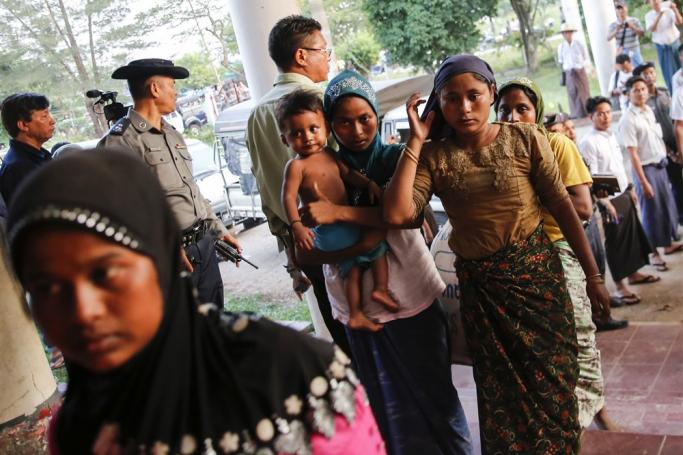The Women’s Peace Network has released a report about the situation of the Rohingya since the 1 February 2021 coup, titled "We are targeted for being Rohingya in Myanmar and everywhere.”
The organisation hopes that the report will help shed light on the deteriorating conditions suffered by the Rohingya, and encourage the international community to immediately pursue concrete, comprehensive, and concerted actions for the Rohingya people of Myanmar.
On 22 March 2023, the one-year anniversary of the United States government's official recognition of the Rohingya genocide, the founder and executive director of the Women’s Peace Network, Wai Wai Nu, said: “The past year has been catastrophic for the Rohingya community, who now risk genocide in Burma and life-threatening conditions as refugees. So I hope that the United States will follow its historic determination with equally momentous actions to lead Rohingya through 'a path out of the genocide' -- until Rohingya find peace, justice, and freedom in their homes in Burma.”
According to the Women’s Peace Network, since the Burmese military’s attempted coup on February 1, 2021, the Rohingya community has been subjected to increasingly life-threatening circumstances in Myanmar and other countries in South and Southeast Asia.
A pattern of escalating grave rights violations has emerged from such circumstances.
In Myanmar, in addition to committing serious international crimes and other violations of international law across the country, the military is targeting the over 600,000 Rohingya who remain in the country with laws and policies that criminalize the exercise of fundamental freedoms, as well as arbitrary arrest and detention, torture, sexual violence, and even murder.
Such brutal, systematic acts add to the decades-long genocide to which the predominantly Muslim Rohingya have been subjected, and risk the surviving population with further attacks of genocide in Rakhine State.
Rohingya who have had no choice but to escape this persecution have since joined the near-one million refugees from their community in Bangladesh, Malaysia, India, as well as other South and Southeast Asian countries, where their access to basic needs and livelihoods continue to deteriorate despite the sustained efforts of the international and regional community.
Throughout their desperate attempts to find any semblance of safety or hope, Rohingya face human trafficking, deportation, and various grave rights abuses – all of which pose a gendered effect to these victims and survivors of genocide.
Such conditions are dire, thus requiring immediate attention and effective actions for Rohingya’s safety and protection, justice and accountability, and recovery and rehabilitation as a people: a path out of the genocide.
The report makes three key recommendations. These are:
1. Bangladesh, Malaysia, India and other host countries of Rohingya refugees must ensure them reliable access to basic needs and services, as well as safety and protection, over arrest, detention, and forced repatriation to Myanmar.
2. The international community must pursue concrete and comprehensive measures to hold the Burmese military accountable for its international crimes. It must also consult with Rohingya in all decisions and mechanisms that may affect their lives and future.
3. The civilian government and leadership in Myanmar must recognize the genocide, guarantee Rohingya equal rights and citizenship, meaningfully engage with them in its administration and governance, and provide them with avenues for justice, rehabilitation and reparations in Myanmar.
In response to the report Tun Khin, the President of Burmese Rohingya Organisation UK, said: “Over the past year we have seen Rohingya refugees in great peril. They do not have the assurances of safety and protection that you would expect survivors of genocide to have.












